CoF Post 5/12: Nonviolent direct evidence
How to Disrupt Fossil Fuel Business-as-Usual
Dear Cornell on Fire and supporters,
Thanks to all who joined our public lecture that took to the streets on May 2! “How to Disrupt Fossil-Fuel Business-as-Usual” was a rousing success. We were especially moved by the interweaving of so many causes on campus, with special thanks to our coalition partners. Check out the press coverage, photos (on Instagram or the web), and further materials from the event on our action page.
Our event took place in an experimental spirit informed by the following findings:
Problem: Most young people and scientists report serious concerns about climate change and believe that addressing it requires fundamental changes to social, political and economic systems – yet the vast majority of them do not engage in advocacy or protest.
Application to Cornell: If most Cornellians and community members care deeply about climate change, why do so few show up at protests to confront their own university’s climate inaction and obstruction?
Causes of the problem: Researchers have identified the following barriers for contemporary individuals’ willingness to join climate protests:
Not identifying with activists.
Our hypothesis: Those who identify as “activists” are a much smaller group than those who identify as “lecture-goers.” Reaching the latter group is essential to growing the former group.
Perceiving oneself to have an unsuitable personality for activism.
Our hypothesis: Bringing nonactivists into a lecture where we invite them to join an action based on the lecturers’ presentation of historical evidence that such action is necessary could tap into one’s personality characteristics as a scientific thinker and a supportive person, rather than an “activist” (or nonactivist).
Not having an advocate/activist in one’s inner circle.
Our hypothesis: Bringing activists and nonactivists together for a lecture could create supportive conditions for joining a protest by creating a spontaneous social grouping where one’s momentary “inner circle” includes activists.
Disagreeing with activists’ ideology and strategy.
Historical evidence: Most of the public has historically disagreed with protest movements. The Civil Rights Movement is an excellent example: During the critical protest years, public opinion even among Northerners was not favorable to Martin Luther King or protesters’ tactics. (It only swung in favor of the movement after the fact.)
Our hypothesis: If we bring nonactivists into a lecture where this history is presented, it allows them to consider: Would you have been one of the protesters on the streets fighting for civil rights? Or would you have been one of the “moderate” majority whom Martin Luther King characterized as the “great stumbling block” to justice by constantly saying, "’I agree with you in the goal you seek, but I cannot agree with your methods of direct action?’"
Solution to the problem: According to data from the Yale Program on Climate Change Communication cited by Kevin Young in Abolishing Fossil Fuels, 14% of US residents say they would “personally engage in non-violent civil disobedience against corporate activities that make global warming worse” if someone they “like and respect” recruited them.
Our hypothesis: We hypothesize that this figure is considerably higher among those who attend public lectures at Cornell, and that Bill McKibben and Kevin Young are well-liked and well-respected figures. What would happen if they invited people to join a protest?
Experimental Results: Over 100 people joined us in person for the lecture, with others watching online. A majority of lecture attendees also joined our action, with the rate of participation estimated at about 70-80%. If you attended any part of the in-person event, will you please fill out this 2-minute survey to help us elaborate our results?
Initial feedback from participants is illuminating. Sara Hess, a longtime environmental activist working with Fossil Free Tompkins, related: "I love costumes and making fun of hypocrisy, so I'm loving my Cornell University Fossil-Free Degree diploma, beautifully signed with more decorations on the back. Suitable for framing." Carol Chock, also a longtime climate activist, remarked: "My conception from the pre-event marketing evinced no idea that you were going to create such a vibrant and invigorating experience. The speaker put today's tough fight in the context of the history of the struggles many of us in the room watched or participated in first hand, and some that came before us."
Beautifully put. Our movement ancestors teach us that we are not alone and that we can win. Kevin Young argues that “Building the combative mass movements that can win victories over particular capitalists is a prerequisite for winning the socialist system we all deserve.”
We have every reason to believe that we can win victories over the few capitalists and corporate pawns blocking adequate climate action at Cornell, to win the educational system we all deserve. Join us for a coalition meeting this Wednesday, May 14, from 12-1pm over Zoom to debrief and discuss.
Compassionately combative,
Cornell on Fire
*We apologize for the poor audio-visual quality of the live stream and YouTube recording; we are working to render it more viewable.
P.S. We highly recommend reading Abolishing Fossil Fuels in full, published by PM Press and available at Autumn Leaves bookstore downtown.
* * * * *
See more images from this event at our corresponding Instagram post.
* * * * *
Plurivocality: CoF Posts are written by a revolving team of writers. Our movement is diverse, so are our thoughts, and so will be our posts. If you receive a CoF Post that you think is wrong headed, can we still walk together? (We, like you, sometimes write things we later laugh at!)
* * * * *

